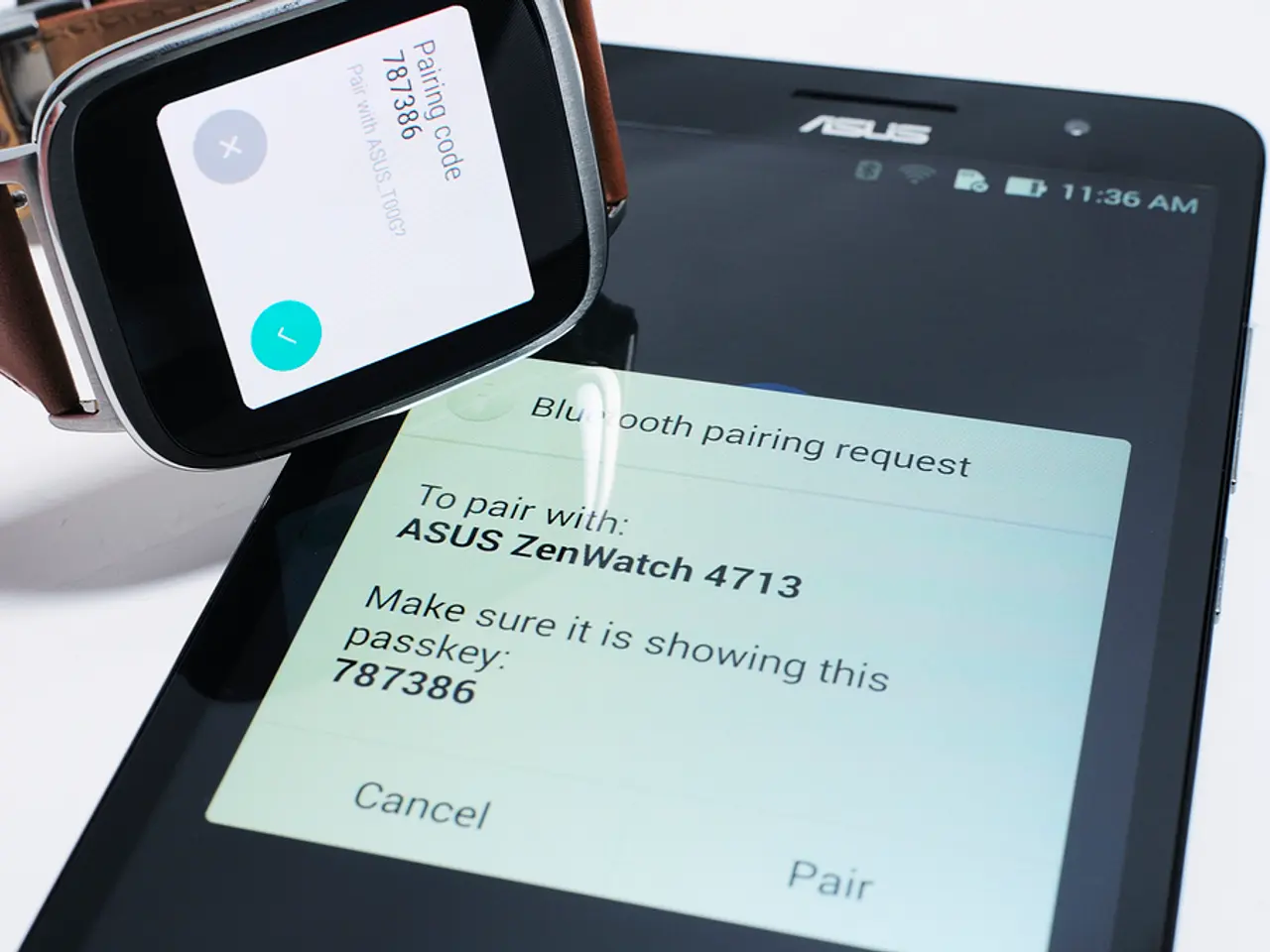Futuristic Advancements in Smartwatch Technology to Watch Out for in 2025
In the realm of wearable technology, 2025 marks a significant leap forward in health monitoring and AI controls. Smartwatches, once simple fitness trackers, have evolved into sophisticated health and wellness platforms, offering clinical-grade sensors and advanced AI capabilities.
One of the key innovations is the AI-powered health analysis. Samsung's Galaxy AI, for instance, interprets sleep, activity, and stress data to provide personalized wellness advice. Apple's Workout Buddy, introduced in watchOS 26, uses AI-based voice feedback to enhance fitness coaching.
Expanded sensor capabilities are another hallmark of 2025's smartwatches. Beyond heart rate and blood oxygen (SpO₂) levels, these devices can now monitor skin temperature and deliver near-medical-grade diagnostics. This evolution opens up the potential for smartwatches to be used in therapeutic and preventive healthcare.
Form factor innovations have also played a crucial role. Besides traditional wristwatches, smart rings like Samsung's Galaxy Ring and offerings from brands like Vertu provide continuous, precise health monitoring in more discreet and comfortable forms. These devices boast strong battery life and rugged designs ideal for all-day wear.
Healthcare integration is another significant development. There is growing acceptance among consumers (94% open to sharing data with doctors) and healthcare providers who increasingly rely on wearable data to inform preventive and personalized medicine.
Leading the charge in this wearable health technology revolution are companies like Apple, Samsung, Google/Fitbit, Garmin, and Vertu. These companies combine state-of-the-art sensors, proprietary AI algorithms, and integrated data services to push smartwatches and wearables from mere fitness gadgets to indispensable tools for continuous health monitoring and management.
The Watch D2, Huawei's latest offering, is a prime example of this advancement. It's the first consumer smartwatch to offer built-in 24-hour ambulatory blood pressure monitoring, thanks to Huawei's TruSense and high-precision optical sensors.
On the other hand, Samsung's Exynos W1000, launched in mid-2024, powers the Galaxy Watch 7 series. It's the first smartwatch chip built on a 3nm process, offering 2.7× quicker app launches, better power efficiency, and a smaller size perfect for wearables.
Moreover, the Exynos W1000 was named a CES 2025 Innovation Award honoree and is covered under Samsung's SoC patent portfolio. It features a big.LITTLE CPU and Mali-G68 GPU.
Another notable development is the PulseSpeed algorithm, developed by Switzerland's CSEM in 2025. This algorithm allows smartwatches to track heart rate, activity, and distance accurately without relying on GPS.
Lastly, the CardiacSense's CSF-3 Medical Watch, launched in 2023 and commercialized through 2024, delivers continuous, motion-corrected ECG and PPG readings from the wrist.
In the world of sleep apnea detection, the Apple Watch Series 10, released in September 2024, made history as the first in the lineup with FDA-cleared sleep apnea detection.
As we move forward, it's clear that smartwatches will continue to play a pivotal role in our health and wellness, acting as personalized health assistants that empower users in wellness and clinical healthcare.
- In the realm of wearable technology, tech giants like Apple, Samsung, Google/Fitbit, Garmin, and Vertu are driving innovation, combining state-of-the-art sensors, proprietary AI algorithms, and integrated data services to turn smartwatches into indispensable tools for continuous health monitoring and management.
- The expanding sensor capabilities of 2025's smartwatches now include monitoring skin temperature and near-medical-grade diagnostics, opening up the potential for these devices to be used in therapeutic and preventive healthcare.
- Form factor innovations are crucial, with devices like Samsung's Galaxy Ring offering continuous, precise health monitoring in more discreet and comfortable forms, and boasting strong battery life and rugged designs ideal for all-day wear.
- Healthcare integration is significant, with growing acceptance among consumers and healthcare providers to rely on wearable data for preventive and personalized medicine.
- Metrics like sleep, activity, and stress data are analyzed by AI-powered health analysis systems, such as Samsung's Galaxy AI, to provide personalized wellness advice.
- Data-driven collaboration is essential, as companies like Apple, Samsung, and Google/Fitbit collaborate on data services to enhance the effectiveness of their health monitoring tools.
- Pipeline innovations are on the rise, with the introduction of the PulseSpeed algorithm in 2025 that allows smartwatches to track heart rate, activity, and distance accurately without relying on GPS.
- Technology breakthroughs like the Exynos W1000, launched by Samsung in mid-2024, is the first smartwatch chip built on a 3nm process, offering faster app launches, better power efficiency, and a smaller size perfect for wearables.
- Portfolio updates are evident, as companies continue to launch new products that push the boundaries of health monitoring and management, such as the Watch D2 from Huawei, offering built-in 24-hour ambulatory blood pressure monitoring.




